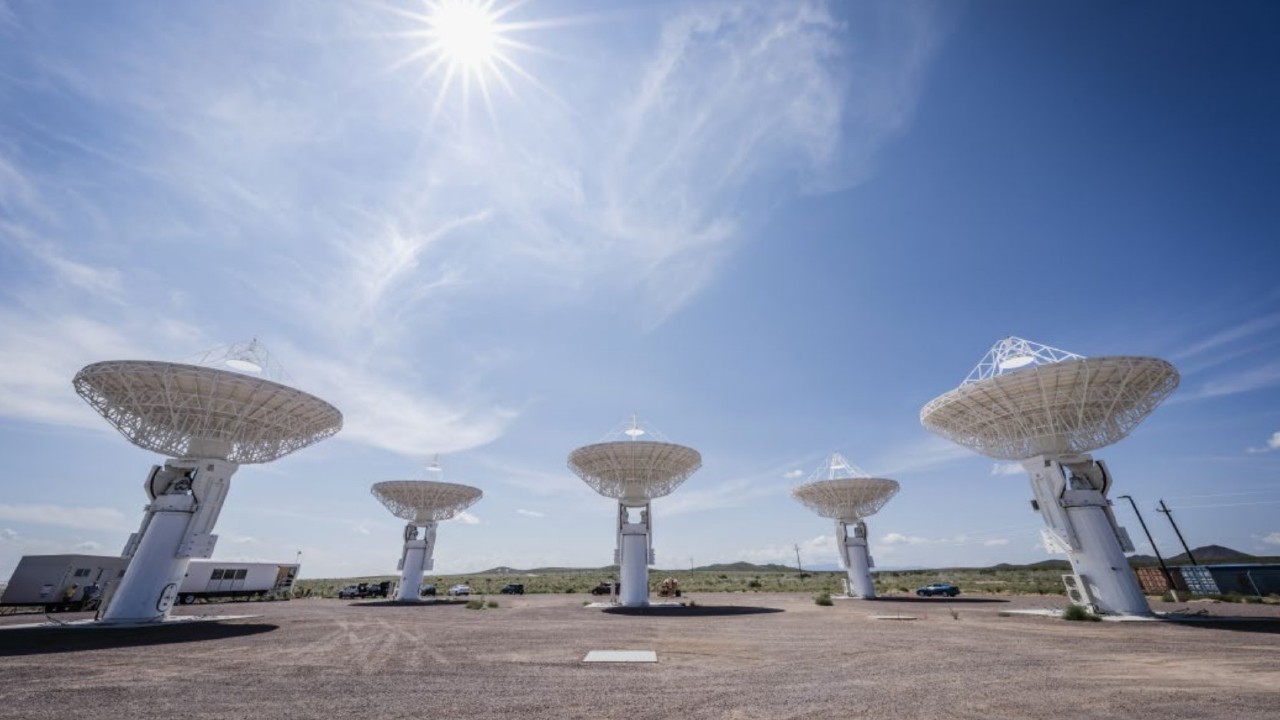The UK Ministry of Defence (MoD) has announced that Wales will host a state-of-the-art Deep Space Advanced Radar Capability (DARC) as part of the trilateral AUKUS security partnership involving Australia, the UK, and the US.
The radar system will be established at Cawdor Barracks in Pembrokeshire, Wales. Originally slated for closure in 2028, it will now be redeveloped to accommodate this critical defense infrastructure.
Defence Secretary John Healey made the announcement on August 7, emphasizing the project’s strategic importance.
“The proposed redevelopment of Cawdor Barracks secures jobs at home and defense capabilities for the future,” Healey stated.
He highlighted the central role that space plays in modern life, from mobile phones to banking services, and underscored its importance for UK Defence operations, including military support, navigation, and intelligence gathering.

Healey noted that the new radar system will enhance the UK’s ability to monitor deep space and, in collaboration with international partners, contribute to the protection of space assets.
Cawdor Barracks, currently home to the 14 Signal Regiment, was scheduled to close no earlier than 2028. However, the DARC project will ensure a permanent presence of up to 100 personnel to operate and maintain the advanced radar system.
The redevelopment will breathe new life into the facility, creating long-term job opportunities and bolstering the UK’s deep space monitoring capabilities.
Secretary of State for Wales Jo Stevens welcomed the announcement, calling it “an important project for Wales.” She added, “By enhancing our awareness and understanding of what is happening in space, we can continue to ensure it remains safe, sustainable, and accessible to all.”
Moreover, in a bid to engage with the local community, the Government has announced two public information events scheduled for September 13 and 14, 2024.
These events will provide Pembrokeshire residents with an opportunity to learn more about the DARC project, ask questions, and share their perspectives. Members of the MoD’s DARC program team will be present to discuss the proposals and address any concerns raised by the local community.
Deep Space Radar Will Help Counter The Threat of ‘Space Warfare’
The Deep Space Advanced Radar Capability (DARC), a key element of the AUKUS security partnership, is set to revolutionize space monitoring through a network of advanced radar stations established across Australia, the UK, and the US.
This initiative aims to develop and deploy three state-of-the-art ground-based radar systems designed to monitor, track, and identify objects in geosynchronous Earth orbit (GEO) up to an impressive 36,000 kilometers from our planet.
Leading this ambitious project is the United States, which took significant strides in 2022 by awarding a USD 341 million contract to Northrop Grumman.
This contract, granted by the US Space Force’s Space Systems Command, is central to delivering advanced radar capability. The DARC program, however, expanded beyond the US when Australia and the UK joined the effort under the AUKUS partnership.
Currently, the construction of the first radar site is underway in Australia at the Defence Precinct Harold E Holt located on the North West Cape.

This site is anticipated to become operational by 2026. The remaining two radar stations, one in the UK and another in the US, are scheduled to be up and running by the end of the decade, completing the global network of space surveillance.
The formal announcement of the DARC initiative under the AUKUS pact was made in late 2023. At the time, US Assistant Secretary of Defense for Space Policy John Plumb said that DARC would utilize the strategic locations of the US, Australia, and the UK to bolster collective space domain awareness.
This enhancement will improve the ability to track, identify, and characterize space objects, thereby strengthening global space surveillance capabilities.
Dr. Rebecca Connolly, an Adjunct Senior Lecturer at the University of Sydney Law School, suggested that the focus on improving space domain awareness (SDA) networks is a strategic response to the growing investments in space by nations like China and Russia.
Specifically, Chinese advancements in satellite reconnaissance and intelligence-gathering capabilities pose significant challenges. The 2023 Annual Threat Assessment report from the US Intelligence Community underscored these concerns, noting that Chinese and Russian space capabilities represent substantial threats to national security.
China’s military, in particular, is integrating space-based services into its weapons and command systems, aiming to undermine the US military’s informational edge.
As space increasingly becomes a critical military domain, with potential vulnerabilities for space assets, the development of an effective SDA system is imperative.
The DARC initiative under AUKUS not only addresses these security challenges but also paves the way for accelerated and enhanced collaborative space capabilities among the US, UK, and Australia.
- Contact the author at ashishmichel(at)gmail.com
- Follow EurAsian Times on Google News




